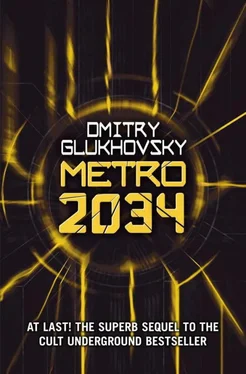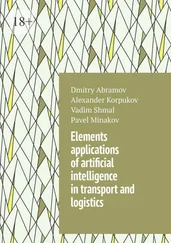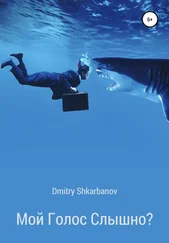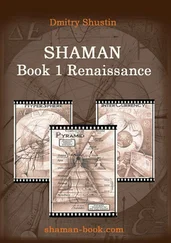She didn’t need to look round to know that despite all her caution a creature had woken up and was staring hard at her back. But she looked round anyway.
The girl had completely disappeared, but just at that minute Homer didn’t have the slightest desire to go dashing off to search for her, just as he didn’t have any other desires.
The signal officer’s diary might have left the old man a smidgen of hope that the sickness would pass him by, but Hunter had been quite ruthless. In launching into his thoroughly planned conversation with the brigadier, the old man had, in effect, been lodging an appeal against his death sentence. But Hunter hadn’t shown him any mercy – and he couldn’t have done in any case. Homer alone was to blame for what would inevitably happen to him.
Only a couple of weeks or even less. Only ten pages covered with writing. And all the other things that had to be compressed and squeezed into the remaining clean pages of that exercise book with the oil cloth cover. But quite apart from his own desires, Homer also had a duty, and their enforced halt at Pavelets seemed to be coming to an end.
He smoothed out the paper, intending to pick up the narrative from where he had broken off the last time at the sound of the doctors’ shouts. But instead of that his hand traced out the same old question: ‘What will be left after me?’ And what would be left after the unfortunates locked in at Tula, he thought, perhaps despairing, perhaps still waiting for help, but doomed to a cruel reckoning either way. A memory? But there were so few people who could be found to remember anyone.
And memories were a frail mausoleum anyway. Soon the old man would be gone, and everyone he had known would disappear along with him. His Moscow would disappear into nowhere too. Where was he now, on Pavelets Station? The Garden Ring Road was bare and dead now – during the final hours military vehicles had cleared it and cordoned it off, in order to allow the rescue services to go about their work and give the cortèges of cars with flashing lights freedom to move. The thoroughfares and side streets grinned with their rotten, gap-toothed rows of detached buildings… The old man could easily imagine the local landscape, although he had never gone up out of the Metro at this station.
Before the war he had been here quite often: he used to arrange to meet his future wife for a date in a café beside the station, then they would go to the evening session in the cinema. And not far from here he had gone through the remarkably superficial medical examination that he was obliged to pay for when he was planning to get his driving licence. And this was the station where he had got into a suburban train when he joined an outing into the summer forest with his workmates, to cook kebabs over a campfire… Looking at the paper ruled off into little squares, he saw the square in front of the station, shrouded in autumn mist, and two towers melting into the haze: the pretentious new office block on the Garden Ring Road – one of his friends worked there – and a little further away, the twisted spire of an expensive hotel, tacked on to an expensive concert hall. Nikolai had checked the ticket prices once: they cost slightly more than he earned in two weeks.
He could see and even hear the jangling, angular, white-and-blue trams, packed with dissatisfied passengers whose annoyance at this harmless crush was so touching. And the Garden Ring Road itself, winking festively with tens of thousands of headlights and indicators, all strung out in a single continuous garland. And the timid, incongruous snow, melting before it could even settle on the asphalt. And the crowd – myriads of electrically charged particles, all energised and clashing together as they darted about in apparent chaos, but each one of them actually moving along its own meaningful path. He saw the ravine between the monolithic Stalinist skyscrapers, from which the great river of the Garden Ring flowed out lazily onto the square, with hundreds and hundreds of aquarium-windows lighting up on both sides of it. And the neon flashes of the signs, and the titanic advertising hoardings, shamefacedly concealing the gaping wound in which they were setting a new multi-storey implant…
Which would never be finished.
Watching all this, he understood that he could never express this magnificent picture in words. Would the only things left out of all this really be the subsided, moss-covered, tombstones of the business centre and the fashionable hotel?
She still hadn’t shown up an hour later, or even three. Feeling anxious, Homer walked round the entire passage, questioned the traders and musicians and spoke with the leader of the Hansa patrol. Nothing. She’d vanished into thin air.
Not knowing what to do with himself, the old man came to anchor again at the door of the room where the brigadier was lying. The very last man he could ask for advice about the girl’s disappearance. But who else did Homer have left now? He cleared his throat and glanced inside.
Hunter was lying there, breathing heavily, gazing fixedly at the ceiling. His right arm – the uninjured one – was lying on top of the blanket and the tightly clenched fist had been grazed on something very recently. The shallow scratches were oozing lymph, staining the bed, but the brigadier didn’t notice.
‘When are you ready to leave?’ he asked Homer, without turning towards him.
‘Me, I could go right now,’ the old man said and hesitated. ‘There’s a problem though… I can’t find the girl. And how can you go, anyway. You’re all…’
‘I won’t die,’ the brigadier replied. ‘And there are worse things than death. Get ready. I’ll be on my feet in an hour and a half. We’ll head for Dobrynin.’
‘An hour will be enough, but I need to find her, I want her to go on with us… I really need her to, do you understand?’ Homer said hastily.
‘I’m leaving in an hour,’ Hunter snapped. ‘With you or without you… And without her.’
‘I can’t think where she could have disappeared to!’ the old man sighed in frustration. ‘If only I knew…’
‘I know,’ the brigadier said calmly. ‘But you can’t bring her back from there, that’s for sure. Get ready.’
Homer backed away and started blinking. He’d got used to relying on his travelling companion’s supernatural intuition, but this time he refused to believe him. What if Hunter was lying again, this time to get rid of an unnecessary burden?
‘She told me you need her…’
‘I need you,’ said Hunter inclining his head slightly towards Homer. ‘And you need me.’
‘What for?’ Homer hissed under his breath, but the brigadier heard him.
‘A lot depends on you,’ said Hunter, blinking slowly, but the old man suddenly got the impression that the heartless brigadier was winking at him, and he broke out in a cold sweat.
The bed gave a long, drawn-out creak as Hunter gritted his teeth and sat up.
‘Leave me,’ he told the old man. ‘And get ready if you want to be in time.’
But before he cleared out, Homer lingered for a second to pick up the red plastic powder compact lying abandoned in the corner. It had cracks running right across the lid and the hinges had bent open and come apart.
The mirror was shattered to smithereens.
The old man turned back abruptly towards the brigadier.
‘I can’t go without her.’
It was almost twice as tall as Sasha; its head touched the ceiling and its sharp-clawed arms hung down to the floor. Sasha had seen the lightning speed with which these beasts moved and the incredible swiftness of their attack. A creature like this could reach the girl and finish her with a single movement, simply by flailing one of its limbs forward. But for some reason it was taking its time.
Читать дальше











